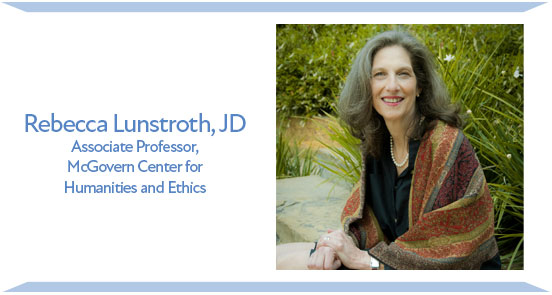November 04, 2020

When did you join UTHealth? What brought you here?
I joined UTHealth in 2004, while finishing my graduate studies in medical humanities at UTMB. Dr. Thomas Cole, the graduate program director, was being recruited to lead the newly formed McGovern Center, and he hired me to conduct some administrative and academic research in furtherance of the position. At this point, it’s probably worth noting that I had previous careers at Shell Oil and the Department of Labor. Shortly after Dr. Cole accepted the position, he reached out and asked if I’d be interested in joining the Center. Although I never imagined a (third) career in academic medicine, the idea of being on the ground floor of a new humanities center was too intriguing to pass up.
Tell me about your work history here.
I have had one of the most fulfilling careers at UTHealth. My initial position was geared toward getting the McGovern Center up and running: learning about the administrative processes and policies, helping create a mission and vision, and connecting with faculty and staff who were interested in collaborating with us. In our first year, the Center launched a new ethics course, and I was asked to facilitate one of the small groups where I found a new passion: teaching. I am still am responsible for the Center’s day-to-day operations, but I assumed increasing responsibility for executing the Center’s educational mission. The following year, I co-directed the ethics and professionalism course with one of my mentors, Dr. Eugene Boisaubin. I subsequently assumed responsibility for other classes and courses, including at the Graduate School of Biomedical Sciences. When we adopted the new medical school curriculum, I was named one of the ethics and professionalism theme directors, which entails overseeing that these subjects are appropriately integrated across all four years. In 2007, I joined the Committee for the Protection of Human Subjects, and I currently chair one of the panels. Earlier this year, the Campus-Wide Humanities and Ethics group, which I lead, was awarded the Quality Enhancement Program (QEP): Health Policy for Health Professionals or HP². The QEP is a five-year education plan that is important for our reaffirmation of accreditation through the Southern Association of Colleges and Schools (SACS). In summary, we will be enhancing the health policy education of all UTHealth students.
What are you most proud of accomplishing?
That’s easy. Helping to establish the Center, working with an amazing group of staff and faculty to launch the poverty simulator, and working with our medical students to establish relevant elective courses. I hope to add the success of the QEP to this list.
How has the university changed since you first joined?
The biggest change has been the growth in our practice plan. This has enabled the Center to form some important and strategic partnerships with our clinical faculty.
Why have you stayed?
Another easy question: our talented and committed faculty, staff, and student body. As a non-traditional faculty member, (I don’t believe I mentioned I have a JD), my colleagues have embraced me in ways I never imagined possible. Their generosity of time and imagination has afforded me so many opportunities to continue to grow. Our students are the other reason I stay. They keep me challenged, motivated, and yes, young.
When you are not at work, how do you spend your time?
I love to Jazzercise and am entering my 37th year of group classes (that are currently online). I’m a huge sports fan and yes, I’m that person who talks about the games on Monday mornings. I’m also an avid fiction reader. I love meeting new people, and my husband and I used to entertain a lot. I just hope my skills don’t get too rusty in this time of social distancing.
|


